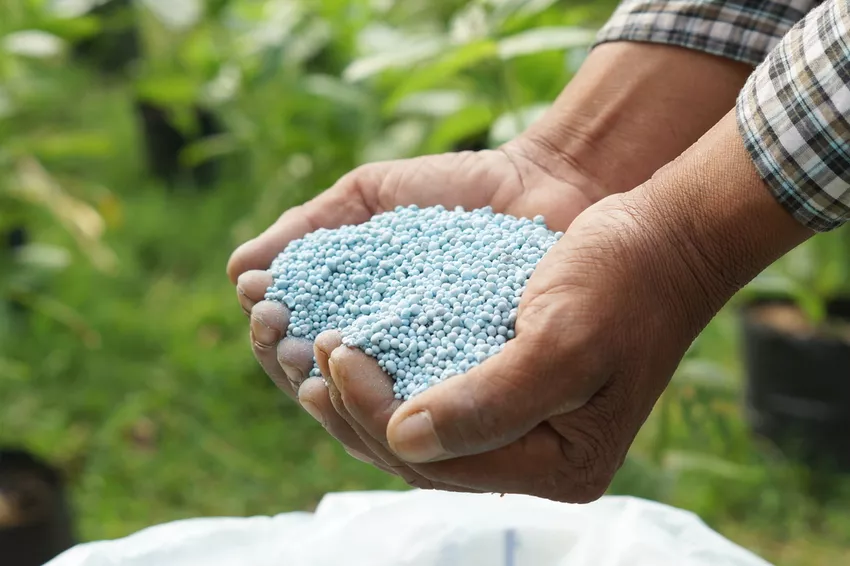- What is blue grain?
- How does blue grain work?
- When is fertilized?
- Attention: Less is more, because blue grain can affect the soil properties
If the lawn is doing well, weeds have a hard time. Therefore, the green carpet should be regularly fertilized and cared for. Many gardeners use the universal fertilizer Blaukorn not only for vegetables and ornamental plants, but also as a lawn fertilizer. You can find out in this article whether the product is suitable for destroying weeds at the same time.
 Blue corn is a controversial chemical fertilizer
Blue corn is a controversial chemical fertilizer
What is blue grain?
Blaukorn is a complete chemical fertilizer that is no longer entirely undisputed. The agent, produced in the laboratory, is not used in ecological gardens. You have to decide for yourself whether you want to use it, because it depends on the soil conditions. Ideally, you should take a soil sample beforehand.
Blaukorn is commercially available as blue-colored granules or in liquid form. This product is a universal fertilizer that can be used for all garden and potted plants, including lawns.
The agent contains the ingredients:
- nitrogen (N)
- Phosphorus (P)
- Potassium (K)
- Some manufacturers also add trace elements such as magnesium (Mg) and/or sulfur (S).
Since the composition is not uniform, you should study the information on the packaging carefully.
How does blue grain work?
The blue granules act like a growth booster. It quickly provides the plants with all the nutrients they need and the effect becomes clearly visible within a very short time. Evergreen plants in particular, including lawns, benefit from this fertilization:
- Nitrogen allows the grass to grow stronger and is responsible for the rich green color.
- The phosphorus it contains has a positive effect on root growth.
- Potassium strengthens the lawn and makes the blades of grass more resilient.
As a result, the grass forms dense, green carpets in which weeds find it difficult to spread.
When is fertilized?
In spring in particular, it makes sense to provide the lawn with additional nutrients. Due to the high concentration of the granules, you have to pay attention to very precise dosing when applying blue grain. A spreader is therefore recommended.
Attention: Less is more, because blue grain can affect the soil properties
If used incorrectly or overdosed, the positive effect of the blue grain turns into the opposite:
- The agent promotes acidification of the substrate, causing the lawn roots to die.
- Some weeds such as clover or dandelion really feel at home in the one-sidedly fertilized soil. As a result, they can multiply by leaps and bounds.
tips
If you want to use blue grain, make sure that small heaps of granules do not form unintentionally. If these dissolve, the plant can be massively damaged by the overdose.